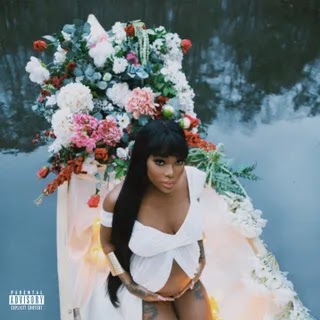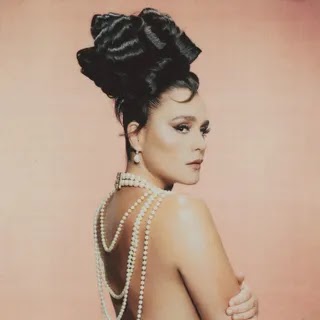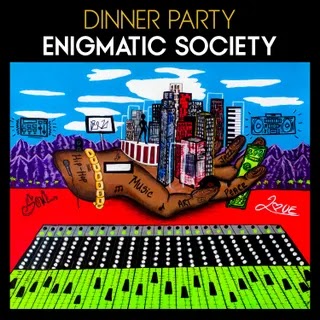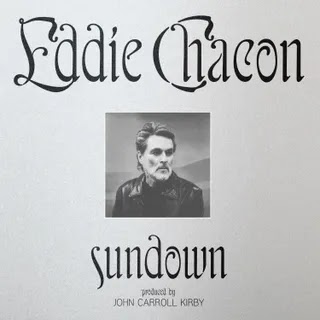The UK singer refines her sound into something moody and aquatic, trading a narrowly escaped adult-contemporary fate for narcotic electronic pop with ASMR undertones.
Låpsley’s debut, Long Way Home, slipped into enough corners of the music world that it might as well have been three albums, not one. The drifty adult-contemporary track “Hurt Me” anchored her to British radio; DJ Koze’s disco remix of “Operator”—which the German producer called a “unique and perfect” song—took her to the clubs. And Billie Eilish fashioned her breakout single, “Ocean Eyes,” after Låpsley’s “Station.” That’s a lot of possible directions to take; given that “Hurt Me” was her biggest hit, it would have been incredibly easy for the UK singer to start down the dismal path to becoming another Adele (a fellow XL signee) or Ed Sheeran.
Fortunately, Låpsley is more interesting than that, and Through Water refines her sound: heavy piano chords; wistful, solipsistic duets with her own pitched-down voice; high, ethereal backing vocals; and low, mournful synth pads like artfully arranged clouds. The title track drifts and swirls around a recording of Låpsley reading a speech by her father, a sustainable-development and water engineer, chopped up and echoed. The effect is a little James Blake, a little Enigma, and more than a little evocative. Out of its original context, the speech’s science jargon is rather abstract—all “impacts,” “mitigation,” “adaptation”—and Låpsley’s own meditations on extreme weather events come couched in distance as well. It’s an unusual take on climate change, which artists more often make cyberpunk or grotesque. Låpsley’s version isn’t an apocalypse but a slow dissolution, which is more often how these things go; the accidental yet unavoidable subtext is that the planet is in its own crisis now, of the shut-in and quiet kind. Against this claustrophobia, the narcotic ASMR spell of Through Water is a comfort.
Such aesthetic clarity is vital for an album that, judging from its credits, should be all over the place. Låpsley wrote and produced most of the record, but her collaborators include adult-contemporary linchpin Eg White (Adele, Florence and the Machine); while making the album, she says, she listened to “lots of WizKid, Drake, Robyn, [and] Ryuichi Sakamoto.” This isn’t a coherent sound so much as four playlists merged and shuffled, and it’s remarkable how Låpsley turns them into one. When Låpsley mentioned Robyn, she was talking about her own “My Love Was Like the Rain”: “I never really write at such a fast tempo, and I just remember shoving loads of, like, Robyn tracks on, and thinking, ‘I want to make a song that has this kind of energy!’” she told Apple Music. But what emerged was no Body Talk banger, nor (thank goodness) landfill alt-pop, but something more like a discotheque returned to the overgrowth. Sedate organs and synth pads flood it like water, and backing vocals and synth wind around it like vines; only the hollowed-out, crackling skeleton of a beat hints at what it once was.
loading...
Elsewhere, the lush pastoralia of “Our Love Is a Garden” is Låpsley’s homage to 4AD in the days of Ivo Watts-Russell and This Mortal Coil. She follows it up with the stunning instrumental “Leeds Liverpool Canal,” fogged over by minor chords and underpinned by sounds of running water (Through Water at its most ASMR) that a delicate piano line hits like sunlight. The effect is haunting, almost post-apocalyptic, like morning after a disaster. The alchemy doesn’t work every time. The Afrobeats-inspired “First” is like hearing Drake and WizKid through stagnant water, less “One Dance” than one lilt. Her less inventive arrangements lapse into mundane ballads—“Speaking of the End,” or the first half of “Bonfire,” which fortunately does go places—and half-hearted dance, like “Womxn”; perhaps this one just needs its own disco mix.
Låpsley’s songwriting, though formalist—full of tidy extended metaphors and twists on cliches—can be deceptively spiky. “My Love Was Like the Rain” turns an old Shakespearean conceit into an ex-partner’s litany of negs (“Remember when you said my love was like a rose/Not the sweet bloom, but the pain as it scratches your hand”). But the partner’s an afterthought, and their half-insults something to embrace: “I embody these elements; I wear them like a fragrance.” There’s a concealed bitterness to her voice on that chorus, but the rest of the track is shimmering and warm and alive. An aquatic rose-and-lily fragrance, after all, would be rather pleasant, actually, and soothing. And an album that embodies black skies, pulverizing rain, and cerebral, arctic chill can be quite compelling: winter, but the kind you can burrow into forever.
View the original article here
















0 comments:
Post a Comment